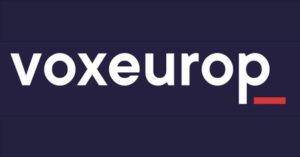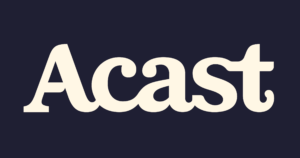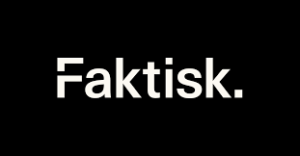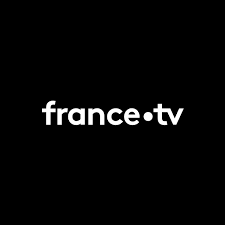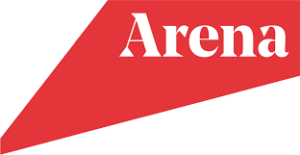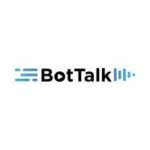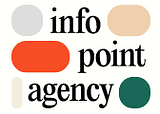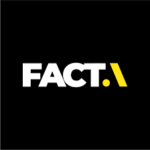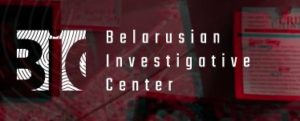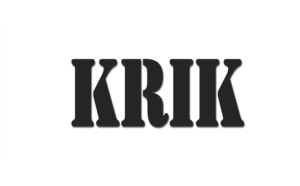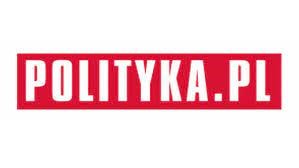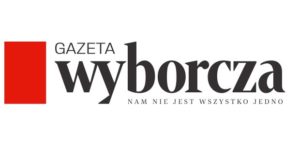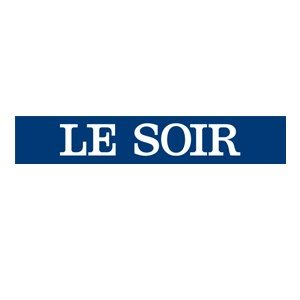On September 19th, we officially announced the 14 winners of the EXPLORE phase, the first phase of the two part Stars4Media programme. These projects will benefit of the funding and coaching to create and implement new innovative ideas in the media sector.
Here below, we proudly introducing all winning initiatives :

Data Management System for Newsrooms
Project: Data Management System for Newsrooms creates a system that, as with the photographic archive or the publication of content, allows all journalists in the newsroom to perform all their data management without consulting with the unit or specialized journalists. In this way, these data journalists can generate high-quality products. This Data Management System for Newsrooms is a product that does not exist on the market and can potentially optimize the processes of small and medium-sized media outlets.
RePod
Project: RePod is a project that aims at developing the podcast market at the European level and overcoming the language barriers that hinder its development through a collaboration between- and the further development of the business models of- Bulle Media, a European podcast production agency based in Brussels (lead applicant) and Acast, an international leader in the business of podcast hosting and monetisation, based in Sweden.
More specifically, RePod foresees the translation of successful podcast series produced by independent podcasters into different European languages, as well as strategic marketing and promotional campaigns to attract advertisers from the targeted countries to these newly translated series. Therefore, the project ultimately implies an increase of the audience of independent podcasters and of their revenue streams. Besides the development of the advertisement market, the project will have a direct and impact on the overall European podcast market, as it will set new standards for the industry, featuring among other deliverables: country-specific market analyses and guidebooks for the translation and remake of podcast series.
Upgrading slow journalism subscriptions: Distilled Membership: a mobile app for independent media
Project: Are We Europe magazine has more than 300,000 followers in total on social media and 4,000 email newsletter readers. The power of print (publications) is strong—our stories build bridges across nations and communities, but many in our audience live busy lives and don’t have time to either wait around for two months until the next magazine is released or read the whole thing in one go.
In order to find an innovative and sustainable solution for this problem within the journalism world, Are We Europe plans to launch its first mobile app by transforming its in-depth content into mobile-friendly digests. The keywords of the app are: Curation, Daily and Easy-to-use. Curated, distilled, accessible, and, most importantly, you can finish it. No endless scroll, no overwhelming news. By giving them the option to consume our stories through an app, we hope to add value to the daily lives of our expanding group of European readers, and become a cross-border media with a strong digital presence. Additionally – one of the ultimate goals of this project is to set an example for developing subscription, community-journalism and membership models for other independent journalists and media outlets.
Real-time news coverage planning
Project: One topic was mentioned a lot more than any other in Finnish News Agency’s (STT) customer satisfaction review in spring 2022: the need for real-time planning of STT’s news coverage. Publishers want to know what kind of content news agency is going to provide for them. They need to know in real-time what the news agency is going to cover for them and how. They also need as much information about to coverage as possible. STT is well advanced in news planning but currently we aren’t able to provide real-time visibility in our own news planning process to our clients. We are at the beginning of this journey and are doing some changes to our web portal, but we would need to do so much more to meet our clients’ needs. With this project, we would do just that. This project would benefit the entire Finnish news media and have a major impact on the media news planning ecosystem due to all significant news outlets in Finland heavily relying their own news coverage on STT’s planning information.
Providing access to factchecked images/videos for professionals and citizens
Project: When you watch a video online, you can face the situation of asking yourself ‘”is it really authentic or is it fake ?”. In that type of situation, it would be a great help to know it this video or image has already been factchecked by a labeled factchecker. In order to fight against misinformation by image, we intend to build a search engine that allow users to make a visual investigation on each fact-checkers data storage. This tool will facilitate the verification of video/image for fact- checkers, media and citizens.
• Fact-checkers to allow them not to duplicate a work already done by another factchecker and to help them to give information more quickly to the citizen.
• The media newsrooms that cannot have a visual investigation department, to bring them this
knowledge and allow them to better inform the citizen.
• The citizens so that they can have a fast answer and not spread a diverted or manipulated image.
Technically, the project will take the form of a plug-in, a platform, which can be integrated into the websites and processes of the media that want it, so that citizens and professionals can access it using their current routines. Each fact-checker will keep its data and verified images in its own storage (respect for governance) and a dataspace will be the secure technological solution for making the connection between the user’s question and the answer drawn from the factcheckers’ storage. The citizen will consult the tool directly on their usual news application or website. As a participatory tool, the supply of the dataspace of verified images that will be the foundation of the tool will require the commitment of factcheckers at an international level. Our ambition is to strengthen the international cooperation of fact-checkers by offering a solution that adapts to everyone’s needs and is therefore compatible with their current visual investigation method.
European Cities Investigative Journalism Accelerator
Project: Most collaborative European projects have big plans, but either no people, that know each other, no clear
vision of what to achieve, have not enough technical skills or have never proven, that they can deliver results. We have already shown, that we can do all four things. With the European collaborative investigation “Cities for Rent”, we investigated the housing market in 14 European capital cities in 14 different countries. Almost all of them published results. The team won the European Press Prize 2022. With the “European Cities Journalism Accelerator“, we want to build upon that work in five ways:
1. We want to carry out three specific investigations on housing in Europe:
a) The spreading crisis of housing debt and its risk to promote a new financial crisis.
b) The crisis of student housing in European capitals and the investors behind it.
c) The biggest landowners per country and how they make cheap construction of new housing impossible.
2. We want to extend the technological framework we built for our first investigation, namely
a) a safe digital working platform for cross-media collaborative research.
b) A backend for shared datavisualizations across different languages.
3. To share knowledge about generating new subscribers/supporters for media outlets through investigative research and the participation of users.
4. To share our knowledge about collaborative research, workflows and technologies to smaller newsrooms in workshops and to slowly extend the network to additional European capitals.
5. To start to develop more regular ways of reporting on shared urban problems across European cities in order to gain efficiency and save money through shared preliminary research and possibly even syndication of articles between the media partners.
APOLLOS
Project: A state-of-the-art of text-to-speech technology that allows high-quality natural synthesized voices. One of the strategic directions of the Mediahuis group is to build valuable digital relationships (subscriptions) with our customers. Various initiatives have already been taken including initiatives in the field of audio. F.e. Mediahuis developed its own podcast app and created the context for the delivery of quality audio journalism.
In a first phase Mediahuis wants to explore with this project how journalistic text can be provided in audio format in a scalable and flexible way in order to convert more readers into digital subscribers. In a second phase the definition of a common textto-speech platform for Mediahuis will be investigated and a proof-of-concept will be conducted for one of the brands in one of the Mediahuis entities. One of the key challenges is the support of different languages and dialects. At the moment Mediahuis delivers journalistic text in more than 8 languages (including Dutch, English, French, German, Portuguese, Luxembourgish, Frisian, Gaelic). But because local and regional news have gradually found their way to digital readers, the text-to-speech platform should support an even greater variety of dialects.
Dron Media: building Russian-language explanatory journalism network (in partnership with Ukrayinska Pravda)
Projects: Dron Media: building Russian-language explanatory journalism network (in partnership with Ukrayinska Pravda) is a project designed by Dron Media and Ukrayinska Pravda. The main goal of this project is to create a work system that would enable individual newsrooms benefit from cost-sharing and expertise-sharing while producing and distributing explanatory journalism content. Explanatory journalism was chosen here as a target format because:
1) it has significant social importance stemming from the need for audience education about complex and important topics
2) it has comparably lower monetization potential through advertising comparing to other “general” formats.
Infopoint Agency: supporting Eastern European independent media
Project: Ukrainian and Belarusian media can no longer rely on advertising from their home markets. Moreover, their audiences are now dispersed across the Central/Eastern European region. Yet these audiences are very interesting for global advertisers (Ukraine and Belarus have some of the biggest populations of IT developers and other outsourcing-related companies, who are in- demand globally). The problem is these global advertisers only work with very large media and marketing agencies. An independent Sales House (Infopoint Agency) for the region’s independent media would be big enough and have the capacity to compete globally, bringing new revenue and expertise to the region’s media at a time when they need it the most. Infopoint will help independent media to search for commercial partners on the domestic markets and abroad, supporting teams in building successful commercial revenues. As saving independent media on these markets now is a question of saving the voice of democracy. Moreover, this would be the first project, which united Ukrainian, Belarusian and later other Eastern European countries (Moldova, Georgia) across media advertising, representing them on commercial markets in European Union and United States for the first time.
Regional Business Practices: Sharing the Best of Western Balkans
Project: Three media companies from distinct Western Balkans countries aim to create a collaboration network/platform, which would enable them to present business news and advertorial content to all three of the communities they are embedded in.
In the mid-term, our activities will enable Nova ekonomija, Capital.ba and MINA to harness another revenue stream, through the standardization of reporting practices and singular code of ethics, by familiarizing with new potential clients that now do not have a direct line of communication with
outlets outside of their respective home states. Dissemination of material not directly tied to single country/community will foster a sense of regional perspective, not only in the wider business community. Currently, Western Balkans media ecosystems cover international intra-regional stories
systematically only if they are pertaining to politics, crime or entertainment. This system-in-the- making should create an incentive not just for promotional materials to cross borders, but should be a seed for future regional coverage of topics that are of concern to everyday life of citizens the most.
In the long-run, this platform can be expanded, incorporate other media outlets or freelance journalists, in order to create a forum on which organizations can not only make some money, but organize or coordinate collaborations across the region. This solution will be scalable, and will mostly impact the workflow and add potential revenue streams, meaning that it can be applied at any level of funding.
Boosting Community Engagement Models for European Fact-Checkers
Project: Bringing together two leading European fact-checkers, Maldita.es (ES) and Facta.news (IT), this project will create and test a cross-border community engagement model for fact-checking organizations that will transform the reach and impact of their work, and enhance the sustainability of their business models. With the increasing intensity of disinformation crises, fact-checking organizations need to have an engaged audience to ensure the sustainability and impact of their work. Drawing on Maldita.es’ successful community model (1.5million social media followers and 1000+ disinformation alerts received every week), we will explore and test ways to replicate this model within the Italian context and Facta.news audience with the aim of increasing Facta.news’ audience engagement by 100% and developing the Maldita.es community engagement model as a product that can be provided to other organizations in the field. Beginning with a listening phase in which we analyze and learn from the Facta.news audience, both organizations will then collaborate to develop and test a variety of community engagement activities before implementing the community model in the ‘boost’ phase. Alongside this, Maldita.es will document and systematize its community model into a guidebook product that will be continuously developed as it is informed by the learning from the project. This project will augment the efficiency and impact of the Facta.news detection and debunking activities and increase their sensitivity to the needs of the Italian public by providing them with an enlarged and more engaged audience sending disinformation alerts. Meanwhile, Maldita.es will diversify its community model, converting it into a product that can contribute to the establishment of its mixed-income business model. Ultimately, in developing and testing professional standards of community engagement for fact-checkers, this project is a foundational step towards a more coordinated and engaged European audience in the fight against disinformation.
Increasing the sustainability of investigative journalism in Eastern Europe through obtaining the crowdfunding skills
Project:
In this project the flagship investigative media in Belarus – Belarusian Investigative Center (BIC) – will partner with the most popular investigative media outlet in Serbia – Crime and Corruption Reporting Network (KRIK). BIC is currently in exile, located in Poland and registered in Czech Republic.
The purpose of this partnership is to explore the power of crowdfunding for journalistic investigation. The BIC has been looking in this direction for over a year now, since they started to grow rapidly and the gaps between donor grants became more acute. KRIK, on the other hand, has a successful 7 years experience in crowdfunding and has already mentored other media outlets. Today, crowdfunding is one of the main sources of their income: during 2021 they have collected over 50.000 USD from the readers through crowdfunding.
Community-based subscriptions for readers who cut expenses
Project: POLITYKA is Poland’s biggest weekly magazine of general opinion with an established digital edition also offering daily news, podcasts, blogs and newsletters. Over the last few years, our digital subscriptions have been consistently growing. However, 2022 brought record inflation rates in Poland (13-14% y/y), so the uncertainty caused by the economic impact of the pandemic and the war in neighboring Ukraine has been exaggerated by raising living costs (20-30% y/y) and mortgage rates (even by 50%-75%). As a result, it is getting harder and harder to acquire new subscribers and retain the current subscriber base. To mitigate that, we want to introduce innovative community-based subscriptions to attract (and keep) customers who need to limit their expenses. The model we plan to introduce will also be an interesting marketing and engagement mechanism by itself. We drew inspiration from crowd-funding tools used for support of valuable ventures also in media. We are eager to test if the crowd-funding mechanism for high-quality and community-engaged journalism would also be appealing to groups of friends, online communities, school or work buddies. Members of the group will be able to decide how to split the cost of group subscription: equally, voluntarily, or maybe there’s one founder. The larger the group, the lower the individual price of course. Also, when a group chooses to renew a subscription, loyalty will be rewarded with a reduced total cost. We believe such self-service budget group subscriptions may attract new readers who have been outside of POLITYKA ecosystem because of: being individually overloaded with online subscriptions, the price of individual access seemed to high, or simply not being aware of the variety of our content and formats, therefore needing a leader – influencer in their own social circle to get in touch with our brand values and subscription benefits.
Data without borders
Project: Cross-border Polish-Belgian data journalism/tech/analytics cohort working together on joint tech and data analysis solutions to be used by both newsrooms. Sharing knowledge, resources and solutions to level up as the most advanced data cohort in the EU media environment.

